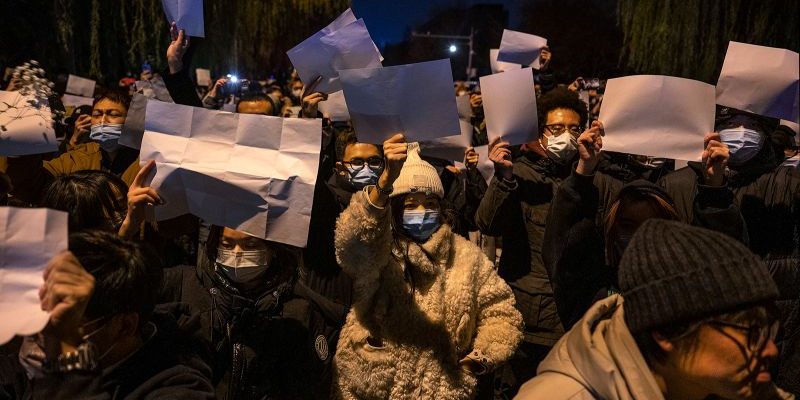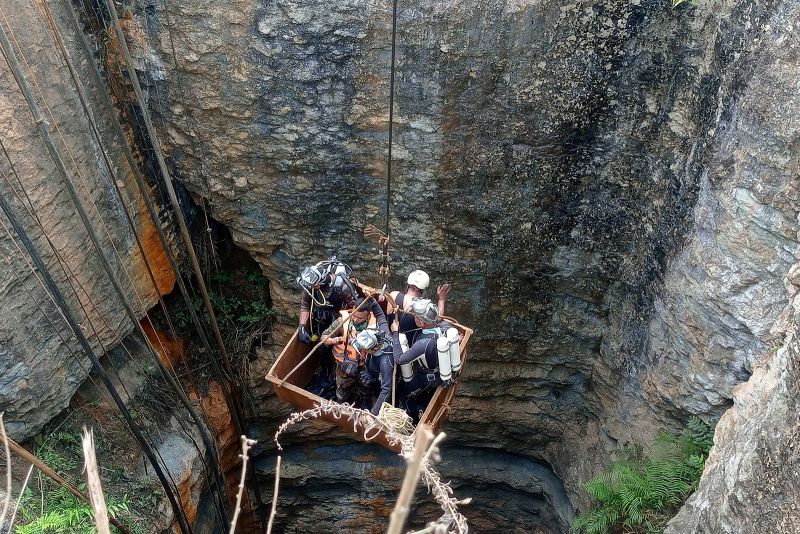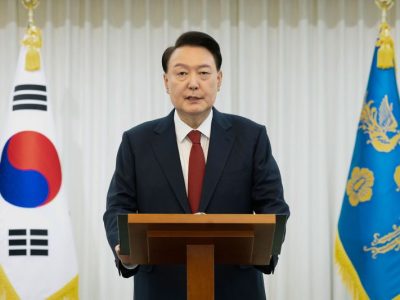
A Chinese filmmaker was due to stand trial Monday over his documentary about China’s nationwide protests against Covid lockdowns in late 2022, as Beijing seeks to erase public memories of stunning scenes of dissent against its handling of the pandemic.
The vaguely worded charge is commonly used by the Chinese government to silence dissent and target activists, lawyers and journalists. It carries a maximum prison term of five years for first-time offenders.
Chen, who goes by the name “Plato,” was arrested by Shanghai police in January 2024 after releasing a documentary to mark the first anniversary of what became known as the “White Paper” protests.
The protests marked the largest outpouring of public dissent China had seen in decades and posed an unprecedented challenge to leader Xi Jinping.
The demonstrations were sparked by a deadly apartment fire in the western city of Urumqi in November 2022. Many believed pandemic lockdown measures had hampered rescue efforts, despite official denials. The tragedy ignited deep public anger that had been boiling over after nearly three years of rolling lockdowns, mass testing and financial hardship.
Protests erupted across the country, on a scale unseen since the student-led Tiananmen movement in 1989. On university campuses and the streets of major cities, crowds gathered to call for an end to Xi’s zero-Covid policy, with some decrying censorship and demanding greater political freedoms.
Some held up blank sheets of white A4-sized paper – a metaphor for the countless critical posts and news articles that had been removed by censors – and the reason why the demonstrations became known in some quarters as the “White Paper” protests.
In Shanghai, protesters even demanded that Xi step down – an unimaginable act of political defiance toward the country’s most powerful and authoritarian leader in decades.
The demonstrations eventually fizzled out amid a sweeping security crackdown by authorities. Soon afterward, the Chinese government scrapped Covid restrictions in an abrupt about-face, though it did not directly acknowledge the protests in any public statement.
Chen’s documentary was released on YouTube and X, which are blocked in China. His accounts on both platforms have since been removed.
In Chinese the documentary was named “Urumqi Middle Road” – a nod to the street where demonstrators gathered in Shanghai to highlight their anger over the fire in the city with the same name.
In English it was called “Not the Foreign Force.” Chen previously said that he wanted to use the documentary to counter the government’s attempt to discredit the protests and blame “foreign forces” for orchestrating dissent – a tactic often deployed by China’s ruling Communist Party to explain away moments of genuine public anger.
Like many young people who took part in the protests, it was Chen’s first time voicing his political demands in China when he took to the streets of Shanghai on November 26, 2022, according to a post he published when releasing the documentary.
He said he produced the documentary to convey his personal experience and reflections.
“I hope to explore why, whenever internal conflicts arise in China, foreign forces are always made the scapegoat. The answer is clear to everyone: the more the government misleads, forgets, and censors, the more we must speak up, remind others, and remember,” he wrote. “Only by remembering the ugliness can we strive toward the light. I also hope that China will one day embrace its own light and future.”
International rights groups have been calling for Chen’s release since his arrest.
Chen “has only ever served the public interest by reporting on historical protests against the regime’s abuses and should never have been arrested. We call on democracies to increase pressure on Chinese authorities to ensure that all charges against Chen are dropped,” Reporters Without Borders (RSF) said in a statement in March.
China’s opaque court system, which answers to the Communist Party, already boasts a conviction rate above 99%. Trials are routinely held behind closed doors. China languishes towards the bottom of the table of the RSF’s annual press freedom ranking at 172 out of 180 places it assesses.










